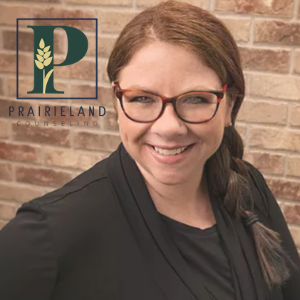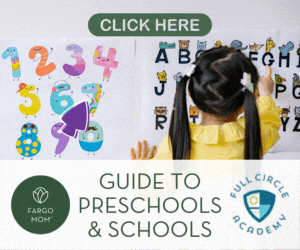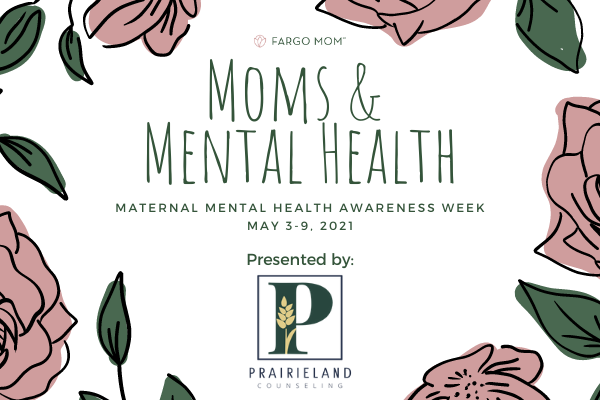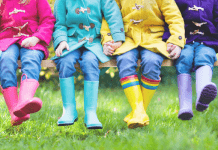
Note: If you are struggling with you mental health, please reach out to Postpartum Support International at 1-800-944-4773 or dial 2-1-1 to connect with someone locally.
Moms, let’s talk about our mental health.
Thankfully, more people are talking about their experiences with perinatal mood and anxiety disorders (known in the clinical world as PMADs). According to Postpartum Support International, 15 to 20% of women experience symptoms of anxiety or depression in the postpartum period.
For years we talked selectively about depression, and always in the context of the postpartum period. We only just recently began to discuss the fact that someone can experience a mood disorder starting in pregnancy and up to a year after giving birth.
Therefore, by talking almost solely about depression we have missed incredibly important conversations about the other mental health concerns that may arise or increase during this period.
Anxiety
So let’s talk about worry.
Everyone worries, right? So when does worry cross the line from normal to anxiety? From a diagnosis standpoint, this is when worry becomes excessive, difficult to control and impacts your ability to function (difficulty falling asleep, trouble caring for yourself or others, or avoiding tasks).
According to PSI, 6% of pregnant women and up to 10% of postpartum women develop anxiety. As a clinical practitioner, I see just as many (if not more) mothers present with anxiety compared to depression.
Some of the symptoms I see include difficulty falling asleep (even though you are exhausted and the baby might be sleeping), feeling incredibly irritable, and experiencing a case of the “shoulds.”
“Shoulds” are incredibly powerful, especially as a new parent.
“Good moms should be doing this.”
“My baby should be doing that.”

“Shoulds” often breed even more “shoulds” and are a huge source of guilt. A lot of work I do with new parents is learning how to challenge this kind of defeating self talk.
Scary Thoughts
So let’s talk about obsessions and compulsions.
An offshoot of anxiety are intrusive images or thoughts that can repeat and feel incredibly scary. They seem to come out of nowhere, make no sense, and intensify the more you think about the thought.
A wonderful book, Dropping the Baby and Other Scary Thoughts by Karen Kleinman, addresses what we are starting to identify as postpartum obsessive compulsive disorder. What is important to note about these scary thoughts is that a parent can often recognize that it is “weird” to be having the thoughts and almost be astonished that they are coming from themselves.
These thoughts are incredibly unlikely to be acted on. These thoughts can lead to compulsions, or behavior a parent does because they feel it is absolutely necessary to do. Like if a parent has the intrusive thought of “I’m going to drop my baby down the stairs,” they may avoid carrying the baby when going up or down the stairs and make others do that task for them.
Rage
So let’s talk about anger.
Rage. It’s a word that often evokes a very clear picture. But when applied to the pregnancy/postpartum period it is often shrouded in secrecy. Often a symptom of depression, postpartum rage, anger or extreme irritability is often experienced but rarely talked about.
It looks like an anger reaction that feels like it comes out of nowhere. It can feel like it takes over, and looking back may even feel like an overreaction. A lot of partners will describe this anger as “surprising” and “out of character” for the person displaying it. But put together hormones, lack of sleep, a completely life-changing experience, potential birth trauma, and unclear and sometimes uncommunicated parental roles and you have a recipe for rage.
Other Mental Health Concerns
Anxiety, obsessions/compulsions, and rage are not the only topics that we need to discuss more in a public arena. Birth Trauma, Post Traumatic Stress Disorder, Bipolar Disorder and Postpartum Psychosis also need to be in the rotation.
Ultimately, the most important thing about maternal mental health is that we need to talk about it. If you have any concerns, reach out to a professional to talk about your experience. Even if it is not “diagnosable,” the transition to parenthood or the addition of a new life into an established family system is stressful. You deserve to be heard and supported.
To reach out for help or for more information, Postpartum Support International offers a list of professionals who have received training in perinatal mental health. You can contact them at 1.800.944.4773 or www.postpartum.net.
We are thankful to partner with Natalie Reiter and her team at Prairieland Counseling on our Moms & Mental Health series. Natalie specializes in reproductive mental health, which includes perinatal (before and after birth), postpartum, infertility, infant loss, paternal mental health, and the impact of birth and new parenthood on couples. She is certified as a perinatal mental health counselor from Postpartum Support International, and is the 2019 Outstanding Mental Health Counselor by the North Dakota Mental Health Counseling Association for her work with reproductive mental health. Her work as a child birth educator and her two children have sparked her passion of working with reproductive mental health!
Read more from our Moms & Mental Health series here:
My Experience with Postpartum Psychosis
How Therapy Makes Me a Better Mom
The Unseen Load Black Mothers Carry
About the Author:
 Natalie Reiter, MEd, LPC/LPCC, CCS, PMH-C, started counseling in 2009 and owns Prairieland Counseling Services. She specializes in reproductive mental health which includes peri-natal, post-partum, infertility, infant loss, paternal mental health, and the impact on couples. Her work as a child birth educator and mother of two children sparked her passion to work with reproductive mental health. She has specialized training and am certified in perinatal and postpartum mental health from Postpartum Support International.
Natalie Reiter, MEd, LPC/LPCC, CCS, PMH-C, started counseling in 2009 and owns Prairieland Counseling Services. She specializes in reproductive mental health which includes peri-natal, post-partum, infertility, infant loss, paternal mental health, and the impact on couples. Her work as a child birth educator and mother of two children sparked her passion to work with reproductive mental health. She has specialized training and am certified in perinatal and postpartum mental health from Postpartum Support International.

















